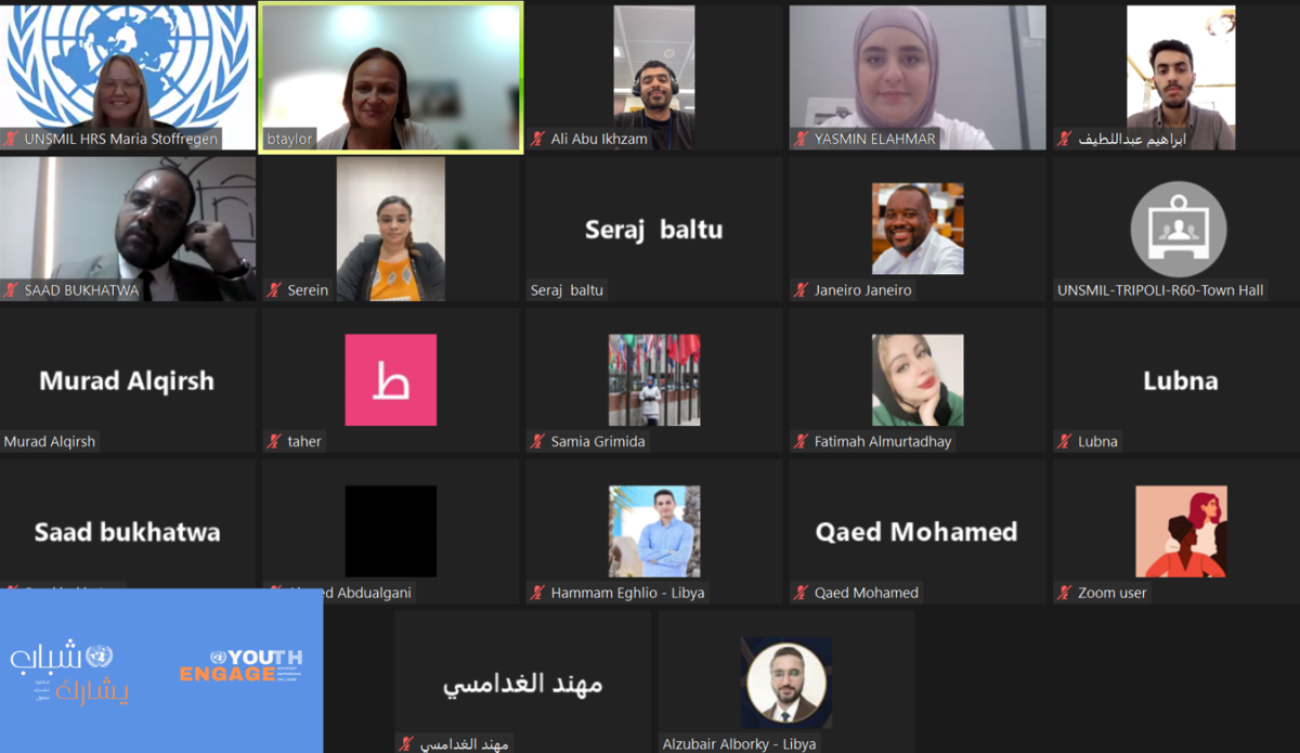MORE KNOWLEDGE AMONG COMMUNITIES AND INCREASED STABILITY IN LIBYA ARE NEEDED TO ADDRESS IMPACTS OF CLIMATE CHANGE, SAY YOUTH

TRIPOLI – 6 August – Youth activists from across Libya joined Deputy Special Representative of the Secretary General and Resident and Humanitarian Coordinator
TRIPOLI – 6 August – Youth activists from across Libya joined Deputy Special Representative of the Secretary General and Resident and Humanitarian Coordinator, Georgette Gagnon yesterday in a workshop to develop recommendations aimed at addressing the impacts of climate change in Libya and encourage youth participation on climate action.
The three-hour workshop co-led by UNSMIL and UNDP, facilitated a discussion among young men and women to identify concrete ways youth could further engage on protecting the environment and reducing the impact of climate change in Libya, particularly as the country approaches the one-year anniversary of the disaster in Derna and affected areas.
“What happened in Derna was a shock, but since then communities have begun to follow climate change issues and understand more what can be, and needs to be done,” said a participant adding that significant issues include instability in the country and limited knowledge among Libyan communities on climate change. Participants stressed that more needed to be done to raise awareness about the importance of climate change and how they can make changes to improve the environment in Libya.
Young men and women who participated in the workshop made the following recommendations:
- Raise awareness among Libyan communities about actions they can take to mitigate the harmful impacts of climate change in Libya.
- Develop social media campaigns to enhance environmental awareness and build the knowledge of youth across Libya.
- Work with communities to develop impactful environmental plans, focusing on initiatives such as improving water and air quality and reducing pollution levels among other actions.
- Establish a large greening initiative to plant trees, build parks and protect green spaces, reducing construction in these areas.
- Libyan government should work with youth and civil society to develop a climate change strategy and adopt relevant global policies.
- As part of access to oil fields in Libya, foreign companies working in Libya should include tree-planting and greening initiatives in their contracts.
- Better use of technology to improve early warning systems to reduce the impact of disasters like floods and improve transparent data collection to monitor air and water quality.
- Establish desalination initiatives to reduce water scarcity across the country.
- Train a cadre of urban planners for Libyan towns and cities to ensure that construction is done in ways that protect the environment.
- Build a network of young people working on environmental issues, as well as dedicated platforms, to foster collaboration, maximize impact and help connect youth to global movements.
“Most young people are not connected to each other, so building a network of environmental activists to advocate on climate change would help diversify the voices involved and build the capability of a wider group of youth,” said another participant.
The workshop was the second in a series of online and in-person engagements convened by UNSMIL under its new YouEngage youth strategy which aims to hear from 1,000 young Libyans over the next year on critical issues.


